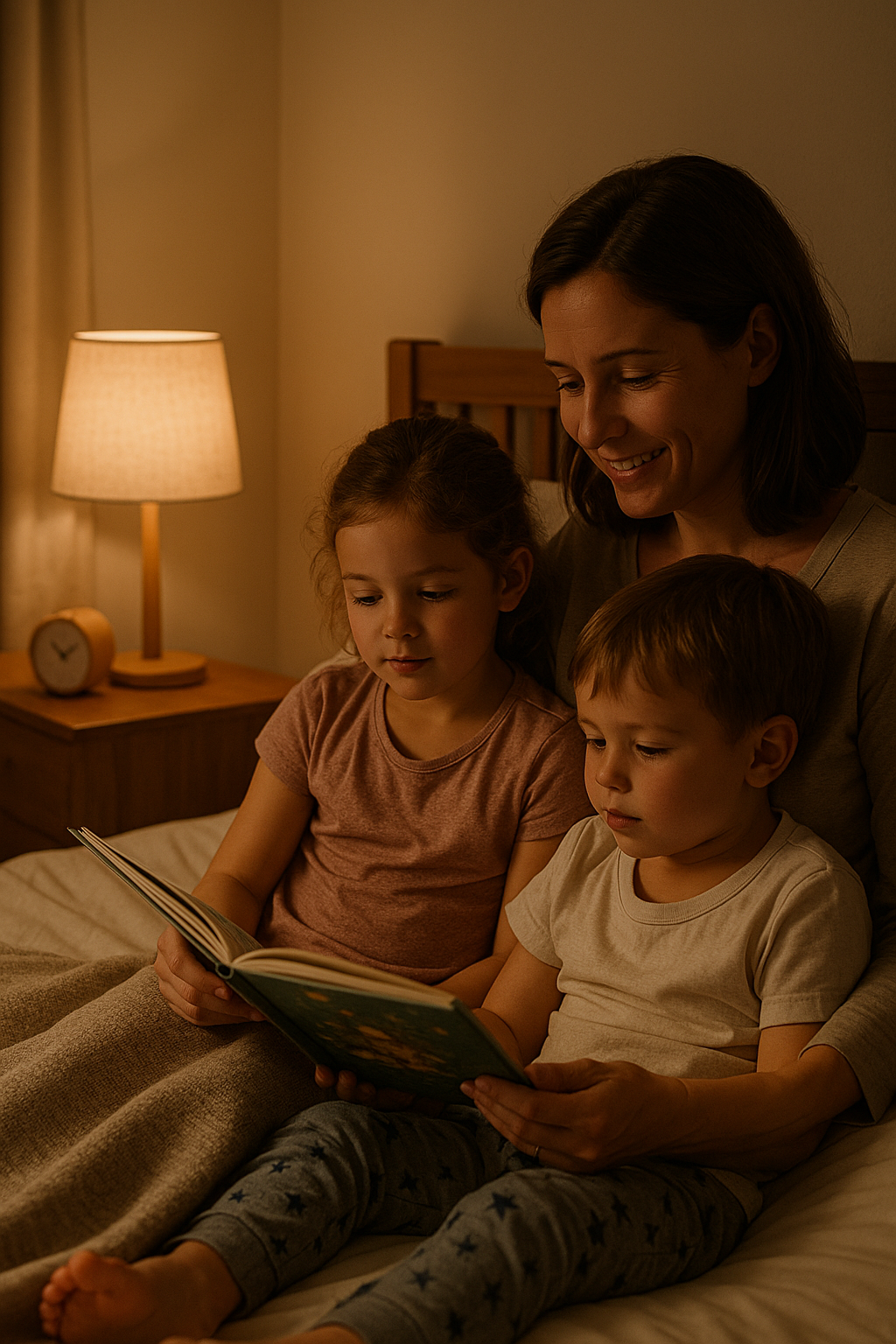Routines are more than just habits—they’re powerful tools that give children a sense of structure, security, and stability. When kids know what to expect, they feel more confident, behave better, and develop healthier emotional regulation. In this article, we’ll explore how to build strong, simple routines that support your child’s well-being and strengthen the parent-child bond.
1. Why Routines Matter in Childhood
Children don’t have much control over their world, and that can be overwhelming. Routines offer a sense of predictability that helps kids feel secure and grounded.
Benefits of routines:
- Reduces anxiety and tantrums
- Improves cooperation and listening
- Encourages independence
- Builds trust between parent and child
2. Start with Key Daily Moments
Focus on structuring the most important parts of your child’s day. These are the times when consistency matters most and where routines can bring the biggest benefits.
Crucial routine times:
- Wake-up and bedtime: Help your child start and end the day calmly.
- Mealtimes: Shared meals promote connection and healthy habits.
- Transitions: Getting ready for school, bath time, or leaving the house.
3. Keep It Simple and Visual
The best routines are clear, easy to follow, and appropriate for your child’s age. Visual aids like charts or drawings can help kids stay on track and feel proud of completing tasks.
Practical Tips:
- Use pictures or stickers for young children who can’t read yet.
- Break big tasks into small steps (e.g., “Brush teeth → Put on pajamas → Choose a book”).
- Post the routine somewhere visible, like the fridge or bedroom wall.
4. Involve Your Child in the Process
When children help create routines, they’re more likely to follow them. It gives them a sense of control and ownership.
Ideas for involvement:
- Let them help choose the order of tasks.
- Offer two options: “Do you want to brush your teeth before or after pajamas?”
- Use a reward system, like placing a star on the chart for each task completed.
5. Be Consistent, But Flexible
Consistency builds trust. But life isn’t always predictable—so while you should aim to follow the routine most of the time, it’s okay to adjust when necessary.
How to manage flexibility:
- Give your child a heads-up if a routine will change.
- Stick to the general flow of the routine even when times shift.
- Emphasize the purpose of routines, not perfection.
6. Turn Routines Into Bonding Time
Routines don’t have to feel like chores—they can be opportunities for connection, learning, and even fun.
Ideas to add warmth to routines:
- Sing a song while brushing teeth.
- Share a favorite story during bedtime.
- Use affectionate phrases to open or close the day, like “I love waking up with you” or “Sweet dreams, I’m proud of you.”
7. Stay Patient During Transitions
Every child is different, and it may take time for a new routine to become part of daily life. Some resistance is normal—especially at first.
What helps:
- Stay calm and encouraging.
- Celebrate small wins: “You put your shoes on all by yourself today!”
- Offer gentle reminders rather than punishment.
8. Reinforce Through Repetition
Children learn through repetition. The more often they follow a routine, the easier it becomes—and eventually, it will become second nature.
Examples:
- Keep bedtime steps the same each night: bath, pajamas, book, lights out.
- Use the same phrases to signal transitions: “Time to tidy up,” “Let’s get ready for dinner.”
9. Adapt Routines as Children Grow
As your child develops, their needs, interests, and abilities change. Your routines should evolve with them.
Tips for adapting:
- Review routines every few months to see what’s working or what needs updating.
- Let older children take on more responsibility in their routine.
- Add new tasks that support independence, like packing their own school bag.
10. Routines Build a Foundation for the Future
Beyond day-to-day benefits, routines teach valuable life skills: responsibility, time management, self-discipline, and confidence. These are tools your child will carry with them into adolescence and adulthood.
Routines Create Calm in Chaos
In a fast-paced and often unpredictable world, routines are one of the best gifts you can give your child. They help kids feel safe, confident, and loved—every single day. And for parents, routines create a sense of control and peace that makes family life more enjoyable and less stressful.
